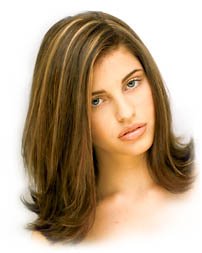How to Take Care of Your Hair?

 OIL HELPS HAIR GROWTH, PREVENTS HAIR LOSS AND DANDRUFF
OIL HELPS HAIR GROWTH, PREVENTS HAIR LOSS AND DANDRUFFTrichologist Dr Rekha Yadav of Revital, Mumbai, says: “Oil is only good for conditioning, similar to what cold cream does for your skin. It’s okay to use it about once a week, but it’s definitely not a necessity. The length and texture of hair is genetically predetermined, so using oil doesn’t result in long, dark or lustrous hair. It also doesn’t help in treating dandruff. In fact, oil tends to increase it as people with dandruff already tend to have an oily scalp. The best way to combat this condition is to keep your hair clean, eat healthy food and use anti-dandruff shampoo twice a week.”
HAIR COLOURING, STRAIGHTENING OR PERMING ARE HARMLESS IF DONE CORRECTLY
Mumbai-based Dr Apoorva Shah of Rich Feel, who is India’s first certified trichologist according to the International Association of Trichologists, believes that fashion and stress are modern-day diseases. He says: “Frequent chemical treatment damages the hair, breaking the disulphide bond that keeps hair healthy. Chemical treatments are harmful to the hair, irrespective of who does them or where they are done. There’s a reason why the highest number of legal cases against the beauty industry are hair related. One cannot comment about the carcinogenic nature of these treatments, as until conclusive research is carried out, it’s purely a matter of conjecture.” Dr Yadav too, avers that even after the chemicals are neutralised, they are still harmful. Excessive use of henna is also detrimental as it tends to dry your hair.
FREQUENT SHAMPOOING DRIES HAIR AND LEADS TO HAIR FALL
Apparently, the 50-100 strands that we normally lose each
day often become tangled with the rest of the hair, and are
washed out only when we shampoo. Says Dr Aravinda of the Follicles Trichology Clinic, Hyderabad, “It’s actually advisable to shampoo as often as possible, especially for people whose lives involve a lot of commuting or fieldwork. If you don’t wash your hair at least twice a week, you’ll lose hair. Frequent shampooing is harmful only if you use a highly medicated shampoo with high chemical content.” Dr Yadav adds: “Daily washers should use a shampoo specially formulated for daily washing, according to their hair type. It should be mild with a polysorbate base and SLS-free (sodium laryl sulphatefree). And yes, the amount of froth a particular shampoo generates has absolutely no bearing on its quality.”
IF YOU CUT YOUR HAIR, IT GROWS FASTER AND BETTER
Suratbased trichologist Dr Samkit Shah, of the Rejoin Centre, has observed that this is one of the most common myths. “Especially people who are balding feel that if they cut off the remaining hair, it’ll grow back quicker. The truth is that there is absolutely no connection between hair growth and cutting. Hair will grow as per the cycle. The only case where this adage may hold true is if someone has split ends, which need to be cut,” he explains. Dr Apoorva Shah explains that our traditional mundan ceremony too, does not encourage good hair growth: “Thick hair growth after cutting or shaving off is an illusion that stems from the hair becoming coarse as a result of the blade passing through the hair follicle.”
HAIR LOSS IS IRREVERSIBLE
Dr Yadav says it is normal to lose
50-100 strands daily. “These are just loose strands. Vigorously combing or brushing the hair 100 times a day like our
elders told us to is more likely to damage the hair rather than stimulate the follicles.” Hair loss occurs due to reasons like stress, hormonal imbalance at times like menopause, pregnancy and childbirth, over-use of styling aids, anaemia, disease, medication, change in nutritional habits or dieting, environmental pollution, etc. And according to Dr Aravinda, even educated people fall prey to the myth that hair cannot grow back. Especially among young males (in their early 20s), thinning of hair is a natural process. “Crash diets and stress could result in this condition, but more than 40-45 per cent of cases are curable with medication, monitoring and correction of diet and lifestyle,” she says. Dr Samkit Shah stresses that helmets and caps do not cause damage to the hair. “On the contrary, they help to protect the hair and scalp from the sun’s harmful ultra-violet rays,” he says.


0 Comments:
Post a Comment
Subscribe to Post Comments [Atom]
<< Home